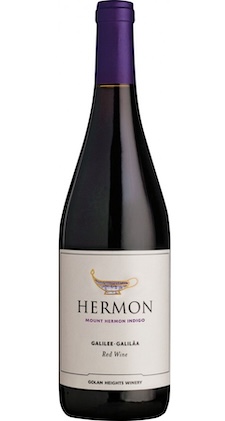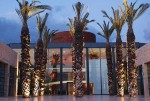According to historian and former ambassador Michael Oren, on Oct. 8, 2023, one day after the terror group Hamas’s brutal assault on southern Israel, the following things happened: 80% of Israelis volunteered to help in any way they could, 360,000 Israelis reported for military duty and thousands of Israelis who were not in Israel on Oct. 7 returned to defend their country.
This remarkable resilience and dedication have also been apparent in Israel’s wine industry. Workers from wineries that could finish their 2023 harvests went to other wineries to help with harvesting and winemaking. A poignant example is the support for Kibbutz Nir Oz’s winery. When Kibbutz Nir Oz was attacked, Hamas murdered the winemaker, Gideon Fauker, z’l, and took his two partners captive to Gaza, where they remain today. In a recent Israel21c article, Andrea Samuels recounts how people in Israel’s wine industry came together to turn Nir Oz Winery grapes into wine and save the vintage, to honour their Nir Oz colleagues.
Jews have been making wine in the land of Israel for more than 3,000 years, a fact confirmed by archeological evidence. King David had vast vineyards and kept large stores of wine, and wine was a major export and economic mainstay for Jews during the time of the Second Temple in Jerusalem. Even when outsiders invaded the land and mandated pulling out the vines many centuries later, a limited number of vines remained to produce wine for sacramental purposes. Viticulture was reintroduced in the late 19th century and, by the end of the 20th century, Israel was garnering international recognition for the quality of its wines. Today, there are more than 300 wineries of all sizes in Israel, and a well-established wine culture.
Since the massacres and kidnappings by Hamas on Oct. 7, the wineries have faced tremendous obstacles due to the ensuing war with Hamas in Gaza and daily rocket and missile attacks on northern Israeli land and communities by the terror group Hezbollah. There are labour shortages, as Israelis are repeatedly called up for reserve duty and many foreign workers have left the country. In the north, some employees who have been evacuated because of the Hezbollah attacks can’t get to the wineries. Any work at the wineries and vineyards in this prized Galilee viticulture region remains a dangerous proposition and there is concern for the 2024 vintage. Vineyards in the north and south have been damaged by rockets and some in the north are inaccessible in closed military zones. Domestic wine sales, on which the wineries heavily rely, plummeted after Oct. 7 and, although they have recovered somewhat, a tourism decline and restaurant and bar closures have exacerbated the sales slump. And, of course, there is the human cost as the wars and threats continue and as many in Israel’s wine industry have lost family, friends and co-workers.
Despite these challenges, the people of Israel’s wine industry have shown classic Israeli resilience, determination, collaboration and commitment to the country and to one another. Samuels’s article noted that, since Oct. 7, Alex Haruni and his Dalton Winery team have been making Shabbat dinners for soldiers posted at the nearby Lebanon border. And, in his article “A taste of total victory,” Adam Montefiore, a 38-year veteran of Israel’s wine industry, wrote about Tom Carbone and his Be’eri Winery.
Carbone and his friend Dror Or, z’l, the Be’eri Dairy cheesemaker who was murdered by Hamas when they attacked the kibbutz, had a dream of collaborating to make Kibbutz Be’eri a food and wine tourism destination. Carbone is working to fulfil that dream for both of them, commuting to Be’eri from the hotel he and his family now live in at the Dead Sea. So far, he has produced an outstanding Be’eri Chardonnay and is continuing his friend’s work at the dairy.
We in Canada can support Israel in many ways, including by buying and enjoying the beautiful wines of her irrepressible wineries. Israeli wines available in British Columbia are highlighted below with tasting notes.
GALIL MOUNTAIN WINERY
Established in 2000 as a joint venture between Golan Heights Winery and Kibbutz Yiron, Galil Mountain Winery (galilmountain.co.il) has five vineyards in the Upper Galilee mountains, with topographical and climatic conditions well-suited to growing grapes of the highest quality for wine production.
Galil Mountain Cabernet Sauvignon 2022: A young, refreshing character with accentuated fruity aromas. No barrel aging. The wine was stored in stainless steel tanks after fermentation to preserve its fruity character.
Varietal: Cabernet Sauvignon
Colour: deep opaque purple
Aroma: pure ripe raspberry and blueberry primary fruit character, with hints of herbs and tobacco leaf
Taste: a medium-to-full bodied wine with delicate tannins; the finish is long and firm
Food: best served at 64°F (18°C) to accompany a wide range of meat dishes
 Galil Mountain Rosé 2021: A dry, light rosé with refreshing acidity. A combination of two winemaking techniques – skin contact followed by cold fermentation.
Galil Mountain Rosé 2021: A dry, light rosé with refreshing acidity. A combination of two winemaking techniques – skin contact followed by cold fermentation.
Varietal: a blend of Sangiovese, Barbera, Pinot Noir
Colour: bright pink
Aroma: scents of strawberry, pomegranate and ripe nectarine with notes of blooming wildflowers
Taste: presents characters of flowers, strawberry and pomegranate; a joyful wine with invigorating and well-balanced acidity
Food: try with a fresh summer salad, with sushi or as an aperitif on its own
Galil Mountain Alon White 2020: The grapes are carefully selected at harvest, pressed gently, and half of the blend is fermented and aged in French oak barrels for three months.
Varietal: blend of Chardonnay, Viognier
Colour: pale lemon
Aroma: citrus blossom, alongside hints of fresh mint
Taste: ripe citrus, stone fruit and a hint of herbs on the palate, with refreshing acidity, light body and a lingering finish
Food: pairs beautifully with grilled fish and fresh salads
GOLAN HEIGHTS WINERY
Golan Heights Winery (golanwines.co.il) gained international recognition after releasing its first wines in 1984 and led a winemaking revolution that put Israel on the world wine map. The Golan Heights, a volcanic plateau with rich basaltic soil, is the coldest region of the Galilee appellation and considered the best for viniculture.
 Mount Hermon Indigo 2022: Made from classic varietals, a young medium-bodied wine full of flavour.
Mount Hermon Indigo 2022: Made from classic varietals, a young medium-bodied wine full of flavour.
Varietal: blend of Cabernet Sauvignon, Syrah
Colour: deep indigo-purple
Aroma: black currant, tobacco and smoke
Taste: medium bodied with notes of raspberry and black cherry, characters of aniseed and cocoa, and hints of flowers and earth
Food: beef brisket, grilled lamb shanks or a barbecued beef burger
TEPERBERG 1870 WINERY
Teperberg 1870 Winery (teperberg1870.co.il) is located in the foothills of the Jerusalem Mountains with vineyards in several growing regions. It is one of the oldest wineries in Israel, founded in Jerusalem in 1870 and, for a time, known as Efrat Winery. Efrat remains a label of Teperberg 1870. The Teperberg and Efrat wines listed are mevushal, wine that has been flash pasteurized.
 Teperberg Malbec Vision 2021: The Malbec Vision undergoes stainless steel fermentation and is aged in French and American oak for five months prior to release.
Teperberg Malbec Vision 2021: The Malbec Vision undergoes stainless steel fermentation and is aged in French and American oak for five months prior to release.
Varietal: Malbec
Colour: deep red with purple hints
Aroma: black fruits and spices
Taste: a deep and layered wine that combines a wealth of fruit with vibrant acidity
Food: beef dishes, charcuterie, beet salads
Teperberg Efrat White Blend 2022: Fermentation in insulated chilled stainless steel tanks for two weeks before the final blend is composed. To retain its crispness, the wine does not undergo malolactic fermentation.
Varietal: blend of Riesling, Semillon, French Colombard
Colour: light, pleasant yellowish
Aroma: mainly citrus aromas
Taste: fresh, balanced with pleasant acidity and medium body
Food: fried or grilled fish
Efrat Judean Hills Cabernet Sauvignon Argaman 2022: Fermentation in insulated chilled stainless steel tanks.
Varietal: blend of Cabernet Sauvignon, Argaman, Carignan
Colour: purple
Aroma: fruity aromas with black and red fruit
Taste: balanced, rich, medium-bodied with a long finish
Food: lamb dishes or pasta in meat sauce
Visit bcliquorstores.com to find a store near you with Israeli wine. L’chaim!
Rochelle Golumbia is an advocate of supporting Israel through Israeli wine and initiated Vancouver’s first Israeli wine festivals.

